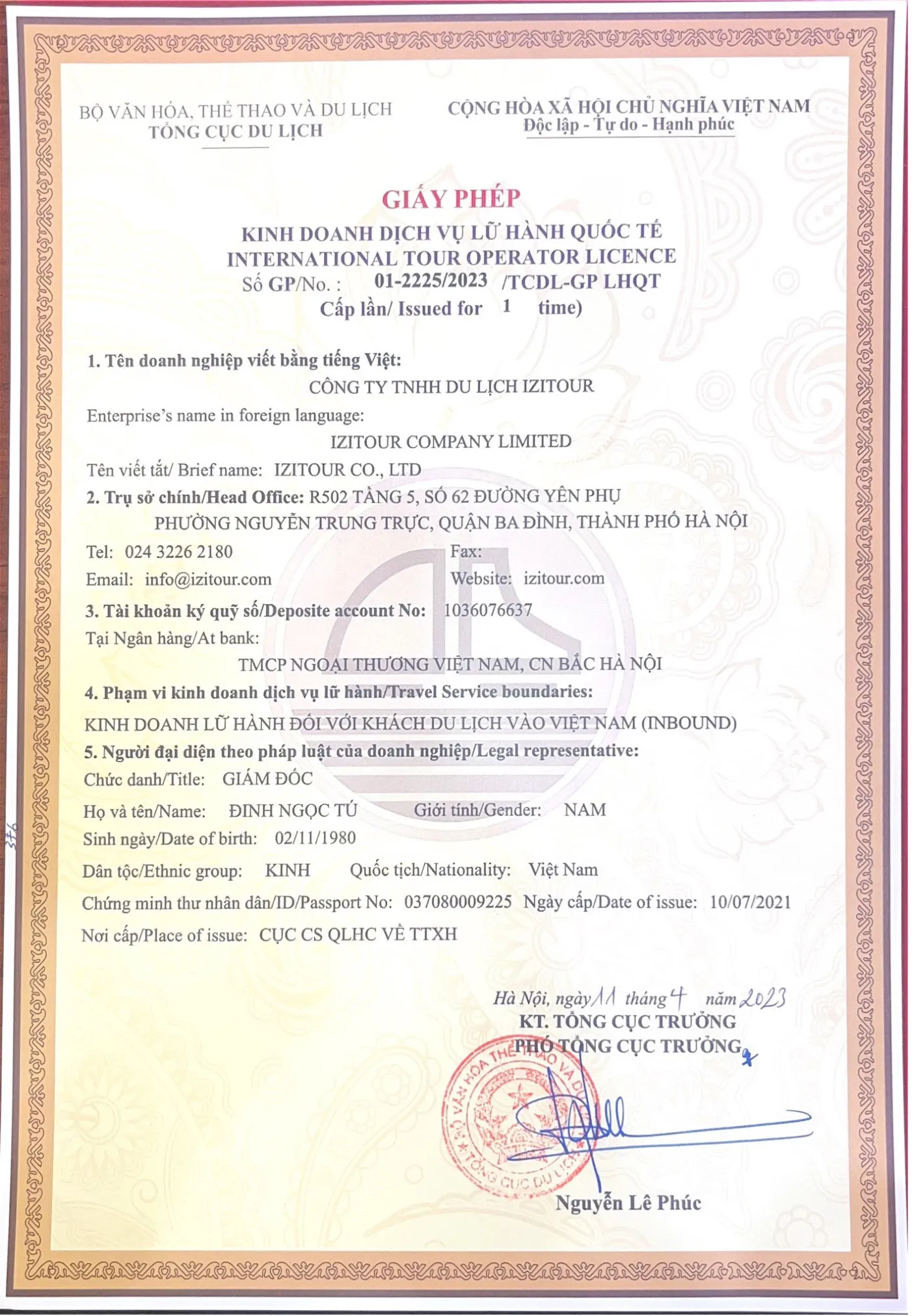Vietnamese cuisine mirrors the country itself: rich, vibrant, and deeply rooted in tradition. From North to South, each region boasts its own distinct specialties, reflecting the climate, history, and local way of life. In the bustling alleyways of Hanoi, the aromatic markets of Hue, or the heart of vibrant Saigon, Vietnamese street food invites travelers to discover unique and authentic flavors. This guide offers you a delicious journey through the three major regions of Vietnam, where every dish leaves an unforgettable taste.
1. Northern Vietnam Street Food
Pho Bo
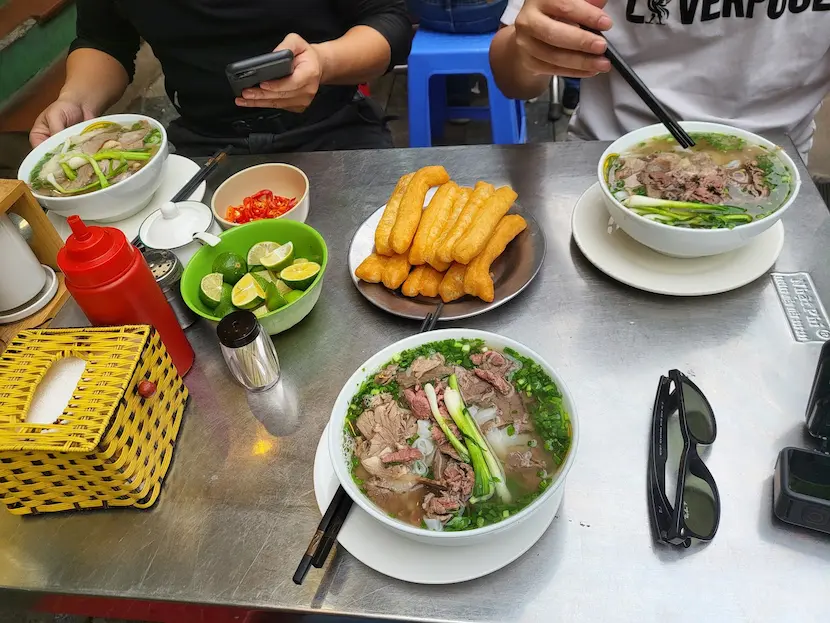
Pho is the most iconic dish of street food in Vietnam. Served in a large, steaming bowl, it perfectly blends delicate rice noodles with a slow-simmered broth, rich in beef or chicken aromas. Fresh herbs, lime, and a hint of chili balance the flavors, offering a taste that is simultaneously delicate, aromatic, and comforting. Each spoonful is an explosion of flavor that warms the heart and reflects the culinary soul of Northern Vietnam.
Bun Cha
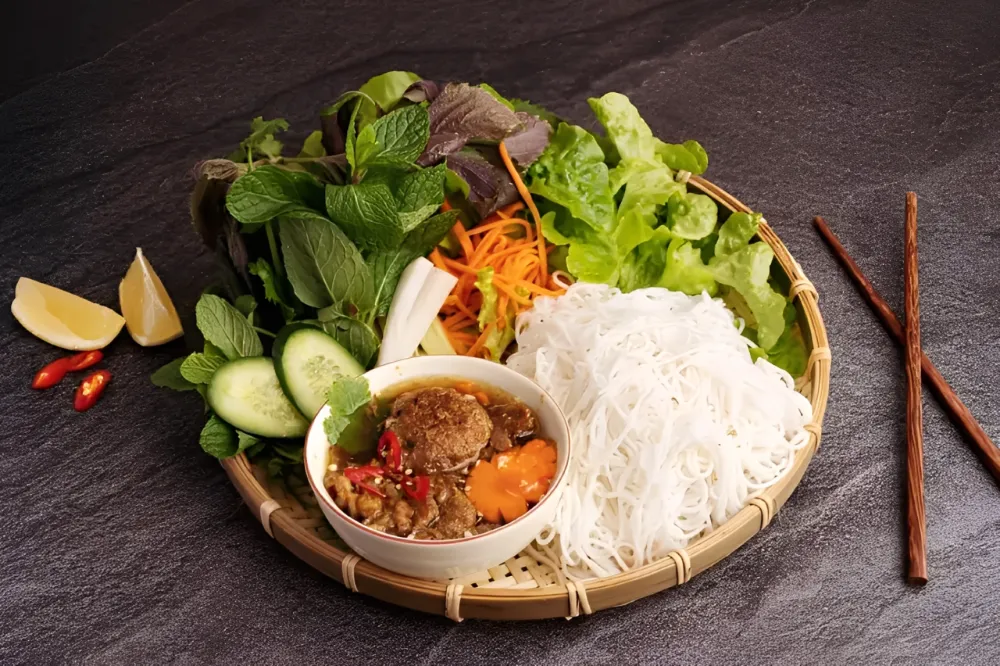
Bun Cha is one of Hanoi's most emblematic specialties. In a steaming bowl, rice vermicelli soaks up a sweet and tangy nuoc-mam (fish sauce) dressing. Each bite combines a piece of charcoal-grilled pork—tender and fragrant, with a lingering smoky aroma—with the freshness of herbs and the crunch of pickled carrots. It's often accompanied by crispy, generously filled nem (fried spring rolls), which perfectly complete this mix of textures and flavors. Known internationally since the meal shared by Anthony Bourdain and Barack Obama in 2016, it is a dish that embodies the unforgettable gourmet spirit of the Vietnamese capital.
Xoi Xeo
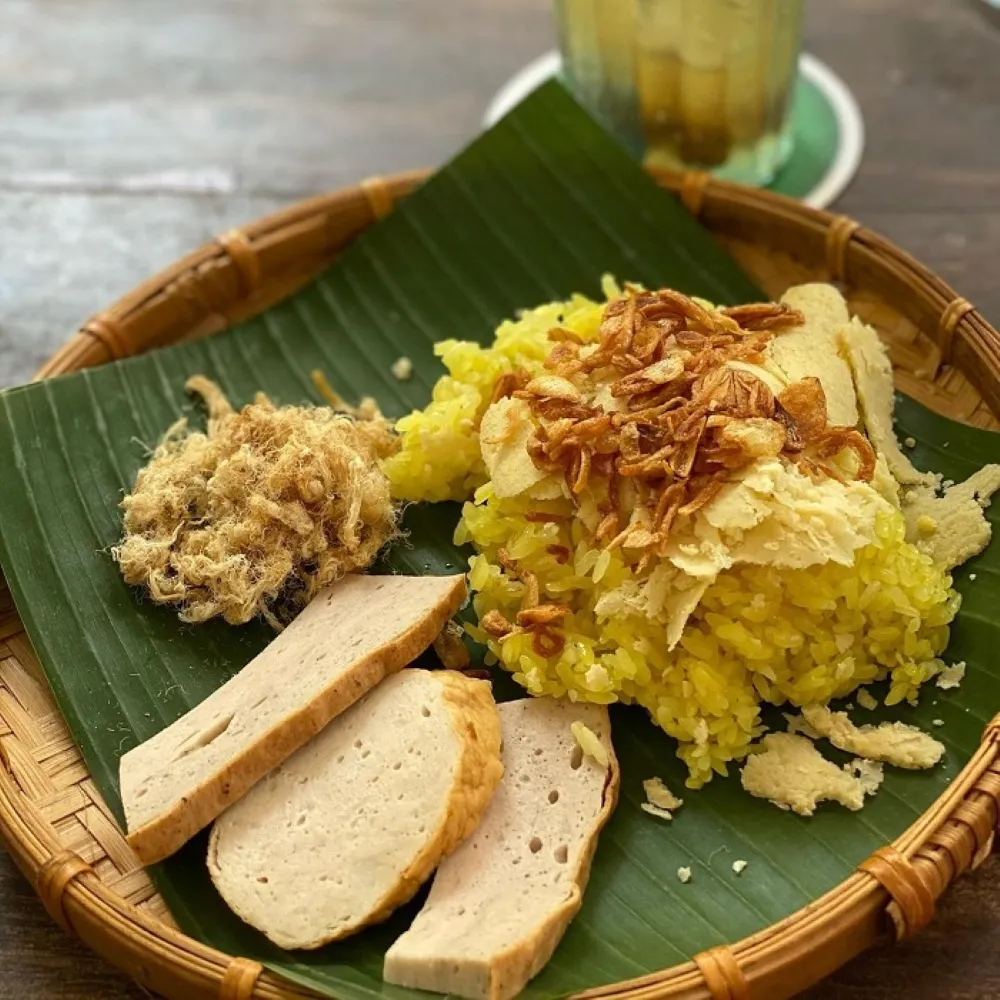
Xoi Xeo, a typical Hanoi morning staple, is appealing in its generous simplicity. Each portion of sticky rice, tender and slightly chewy, is covered with mashed mung beans and crispy fried onions, adding a golden, fragrant touch. The soft texture of the xôi blends with the crunch of the onions. To perfect the balance, a firm, flavorful slice of chả lụa (Vietnamese pork sausage) adds a delicate, savory meat note. A nourishing and comforting breakfast, deeply rooted in the Northern Vietnam culinary tradition.
Chao Suon
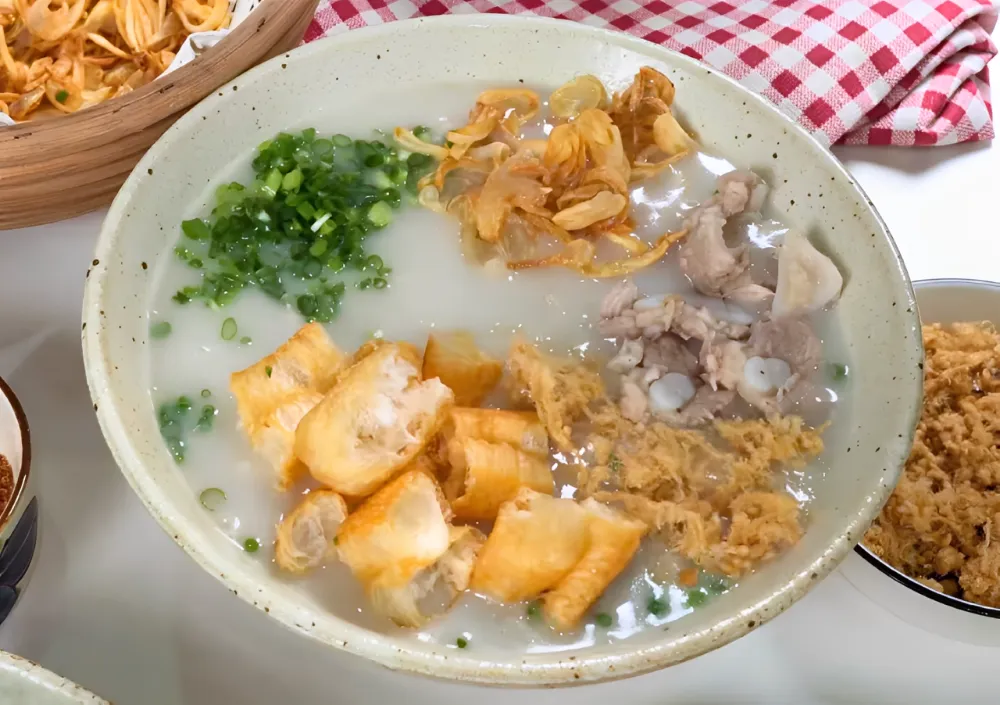
It's common to see locals on the streets of Hanoi enjoying a steaming bowl of Chao Suon. Consumed for both breakfast and dinner, this dish is beloved for its light texture and comforting warmth. The rice, slow-cooked with pork bones, becomes incredibly smooth and takes on a fragrant sweetness. Each spoonful reveals a subtle flavor, accented with a hint of black pepper. Served with crispy quẩy (fried dough sticks), simple yet satisfying, Chao Suon is perfect for starting or ending the day gently.
Banh Cuon
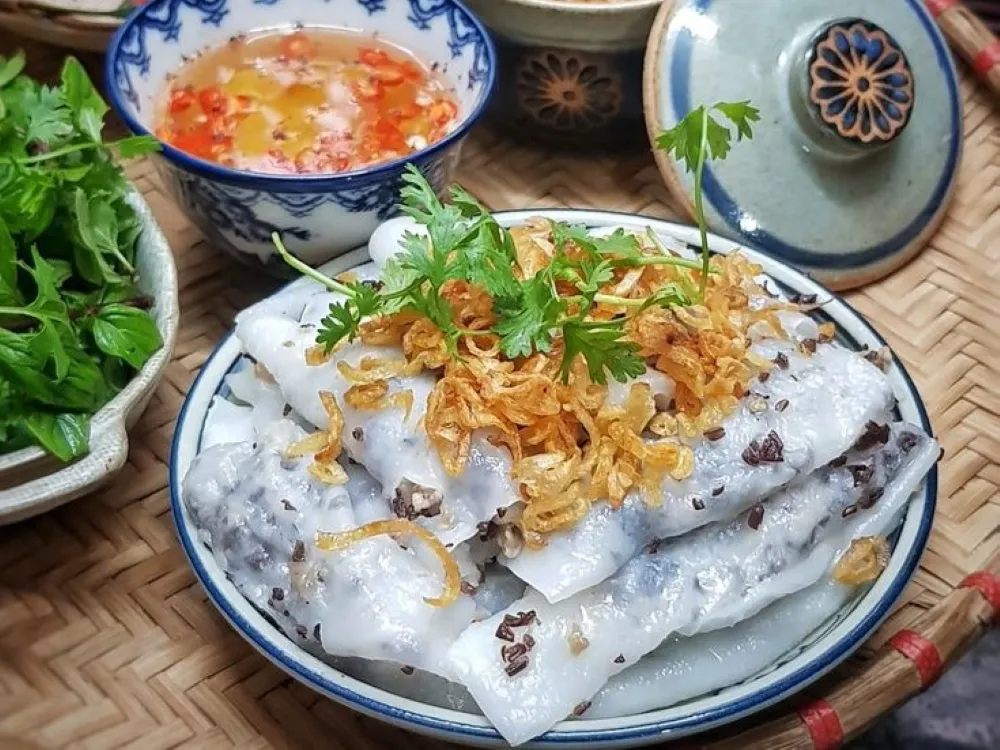
Originating from the North, Banh Cuon is a thin, steamed rice crepe, rolled around a savory filling of minced pork and wood ear mushrooms. It is typically served with fresh herbs, fried onions, charcoal-grilled pork, or slices of Vietnamese pork sausage, and a slightly sweet nuoc-mam dipping sauce. Light yet flavorful, this dish can be enjoyed for breakfast or as a snack. Watching the cooks prepare these delicate crepes on a stretched cloth over steam in Hanoi's alleyways is a fascinating culinary spectacle.
Banh Mi Chao
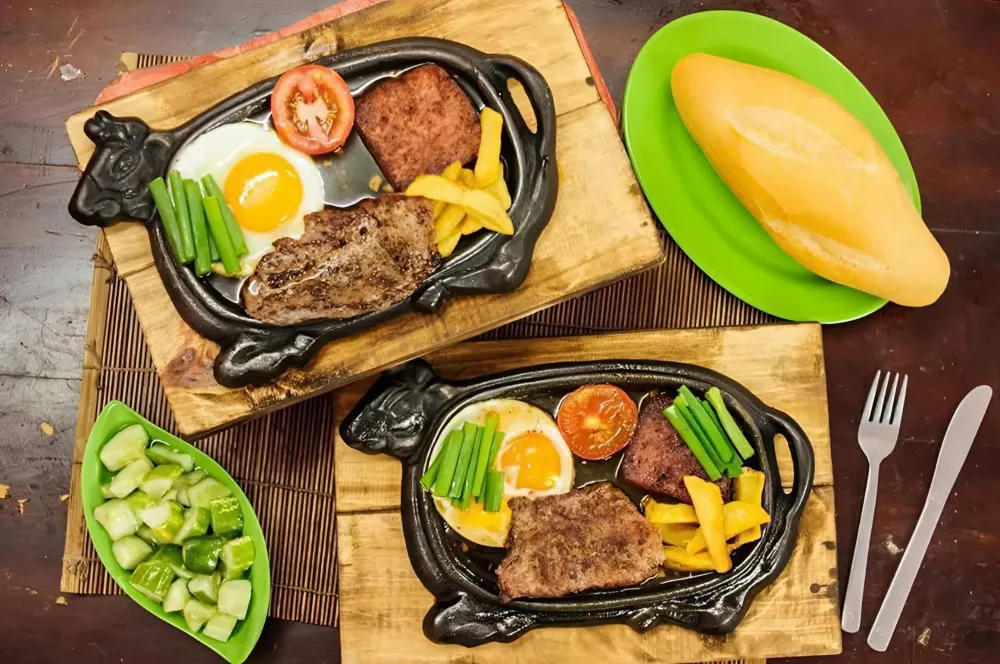
Banh Mi Chao is a gourmet version of the famous Vietnamese sandwich. Here, the crispy baguette is served with a hot pan containing a sunny-side-up egg, sausage, pâté, and sometimes marinated beef. Tear off a piece of crispy baguette, dip it into a silky, buttery tomato sauce, mingling with the richness of the pâté, the creaminess of a soft-yolk egg, the tenderness of the beef, and the freshness of the cucumber that balances it all. A true feast of textures and flavors. This dish is ideal for a hearty breakfast or brunch, reflecting the French influence in local cuisine, reinterpreted in Vietnam's generous and flavorful style.
Bun Rieu
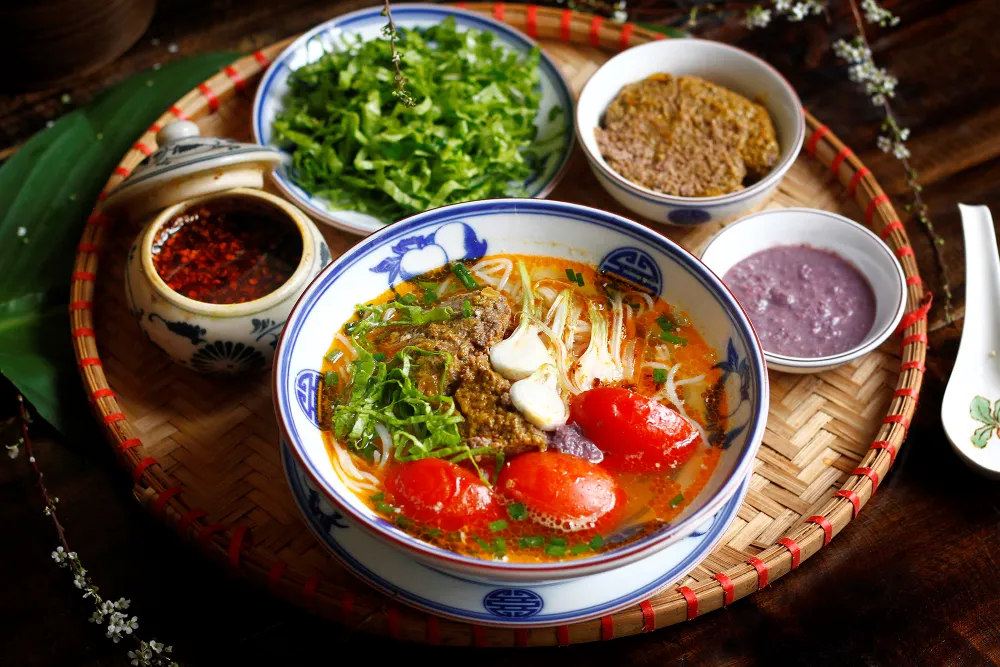
Bun Rieu is a rice noodle soup with a unique taste, prepared with a broth based on tomatoes, pounded crab paste, and sometimes dried shrimp. In this steaming bowl, fine vermicelli is accompanied by soft tofu, tender pork, and fragrant crab pieces. The bright orange-red broth, rich in tomato and marine flavor, offers a tangy, deep note that transforms every spoonful into an experience that is both gourmet and comforting. Light yet intensely fragrant, this dish perfectly embodies the balance between freshness and richness, making Bun Rieu a must-try culinary discovery for Vietnam travelers.
Bun Dau Mam Tom
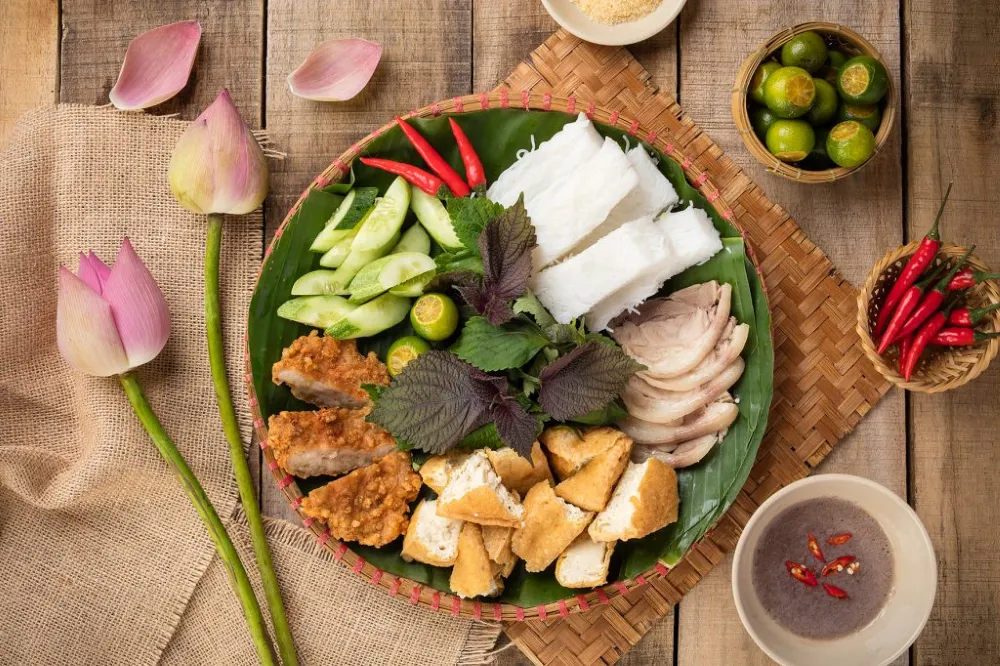
Bun Dau Mam Tom is a typical Northern street food dish, renowned for its bold flavors. On a large platter, fine rice vermicelli is served with golden, crispy fried tofu, accompanied by fragrant fresh herbs. But what makes the dish even more irresistible are its varied accompaniments: soft, slightly sweet chả cốm (green rice flake sausage), crispy and generous nem (spring rolls), and dồi sụn (pork cartilage sausage), which has a texture that is both tender and slightly springy. The entire dish is enhanced by the famous fermented shrimp paste (mắm tôm), with its powerful aroma that often divides travelers: you either love it or avoid it. A surprising combination that appeals to thrill-seekers and the curious in search of authentic Vietnamese street food.
Nom Bo Kho
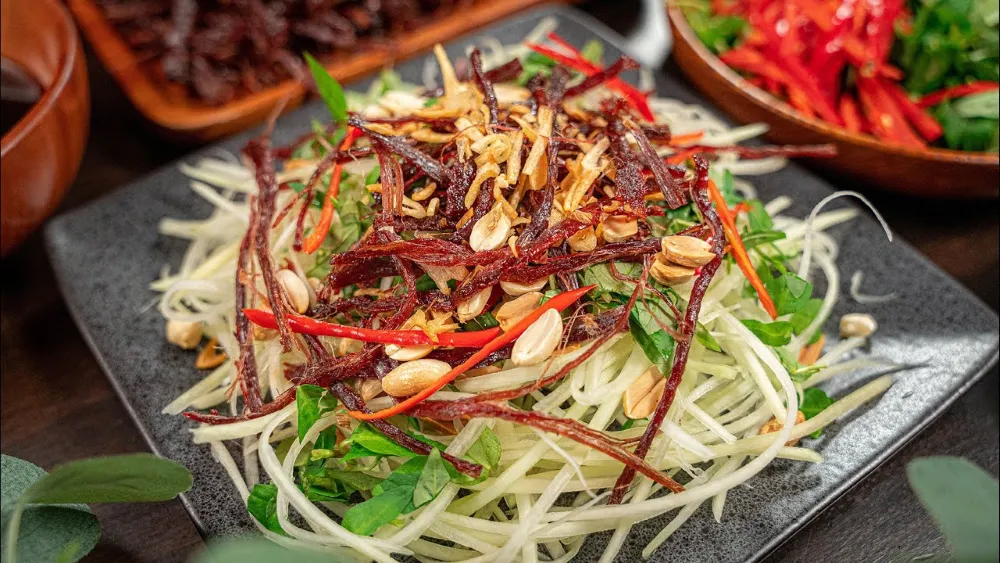
Nom Bo Kho is a fresh and colorful salad made from shredded green papaya, carrots, aromatic herbs, and thin slices of dried beef. Drizzled with a sweet and sour nuoc-mam-based dressing, this dish offers a delicious contrast between crunch, saltiness, and tanginess. Highly popular as an afternoon snack, it is often sold by street vendors in the streets of Hanoi. Nom Bo Kho is appealing in its simplicity and lightness, perfect for discovering a more delicate facet of Vietnamese street food.
2. Central Vietnam Specialties
Central Vietnamese cuisine, particularly in Hue and Hoi An, is known for its intricate presentations, spicy flavors, and unique regional ingredients. These are crucial stops for a comprehensive Vietnam culinary tour.
Mi Quang
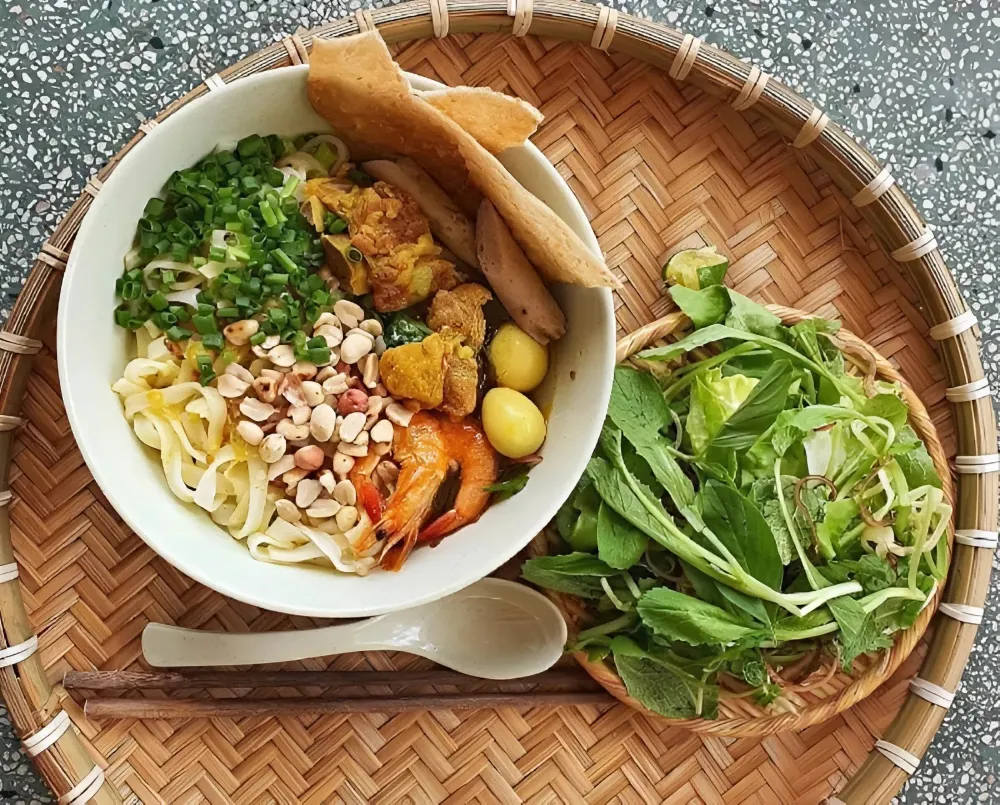
Mi Quang is a thick rice noodle dish, typical of the Central region, served with a pork broth that is both rich and delicately sweet. In the bowl, fresh, tender shrimp mix with juicy pieces of pork or chicken, while quail eggs add a gourmet touch. The dish is topped with roasted peanuts, fragrant fresh herbs, and some crispy rice crackers (bánh đa). Colorful and flavorful, it reflects all the authenticity of Central Vietnamese cuisine.
Nem Lui
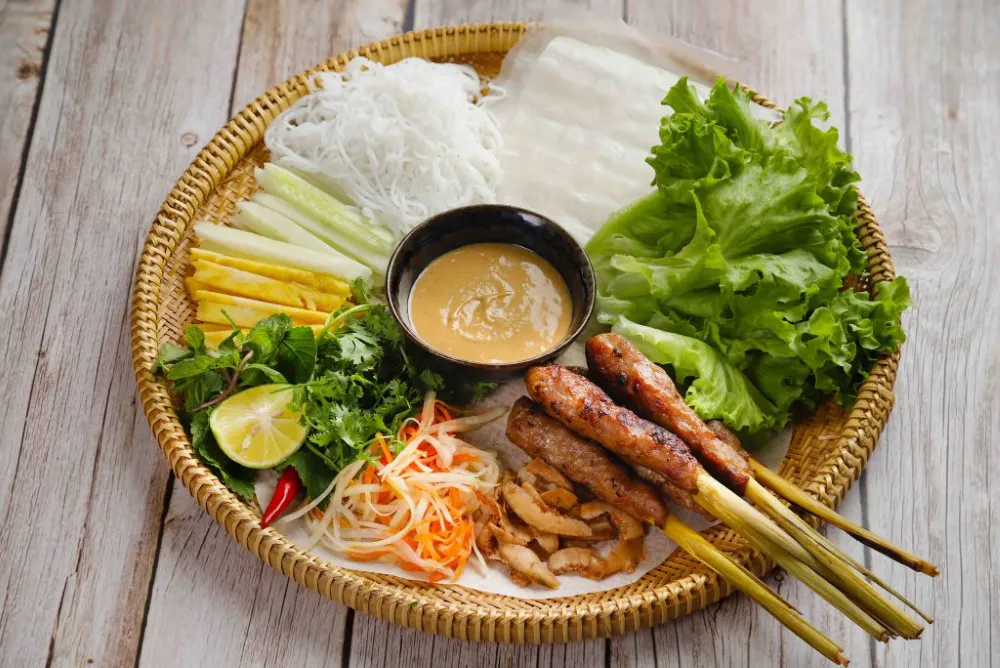
Nem Lui, an essential Central specialty, is often enjoyed rolled in a thin rice paper with fresh herbs, rice vermicelli, slices of green mango, crunchy cucumber, and sweet and sour carrot salad. Dipped in a special sauce, each bite reveals the fragrant, slightly rich flavor of the grilled meat, balanced by the freshness of the herbs and the acidity of the pickled vegetables. A harmonious blend that offers an intense gourmet experience—savory, light, and never overwhelming. In the streets of Hue, the irresistible aromas of grilling Nem Lui invite passersby to stop for a typical tasting.
Bun Bo Hue
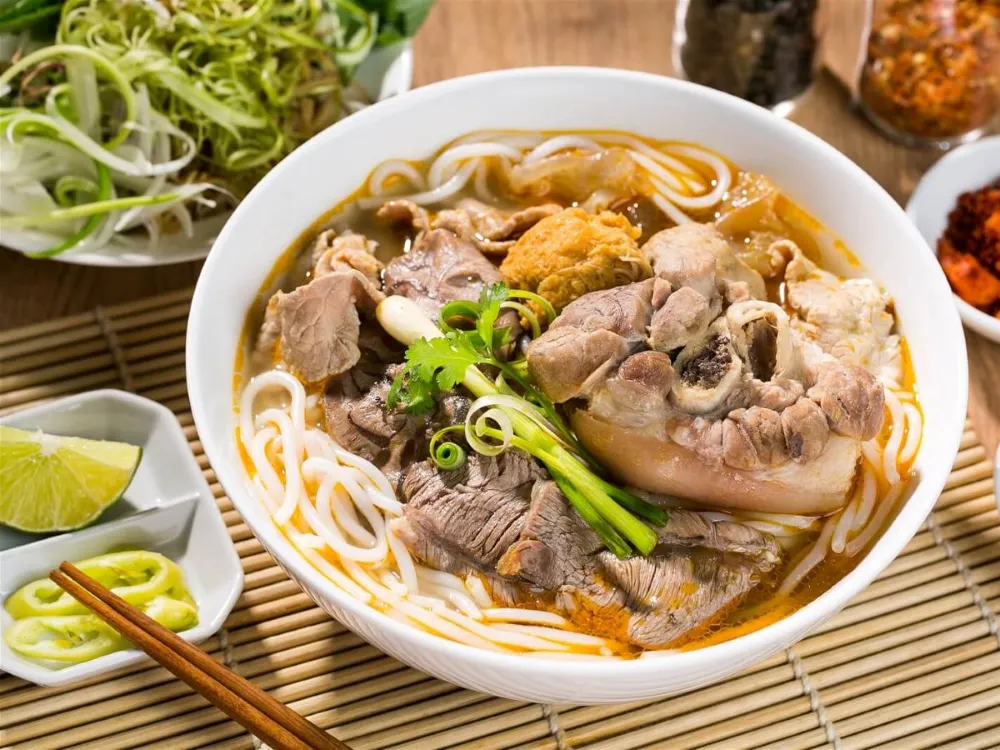
Bun Bo Hue, a culinary symbol of the Central region, is a spicy and fragrant rice vermicelli soup. The broth, rich in spices, becomes even more flavorful and balanced when a little lime is squeezed into it. The thick, slightly chewy noodles are accompanied by slices of tender beef, juicy, slow-cooked pork shank pieces, and tiết bò (blood sausage) with a delicate flavor that melts in your mouth. Served with an assortment of fresh vegetables and herbs, this dish offers an intense and harmonious tasting experience, simultaneously robust and refined. Considered one of the greatest Vietnamese specialties, Bun Bo Hue is a must-try for lovers of intense flavors.
Hen Xuc Banh Da
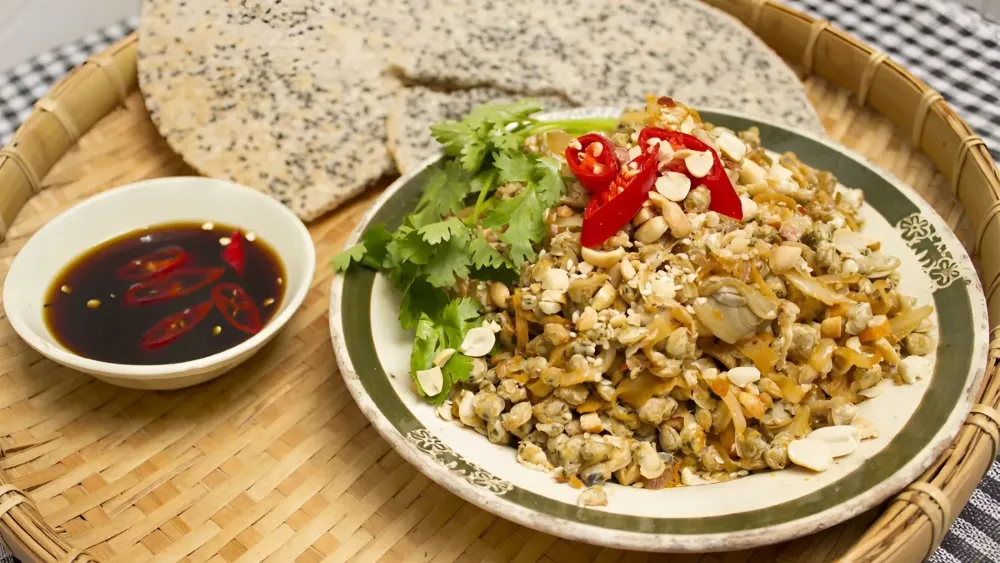
Hen Xuc Banh Da is a typical Hue dish, consisting of small clams sautéed with herbs, garlic, and spices, served with crispy grilled rice crackers. You take a cracker and load it directly with the fragrant hến (clams) for a bite that is both crunchy and savory. It's an authentic Vietnamese street food experience, where simple ingredients are transformed into one of the most original Vietnamese specialties.
Cao Lau
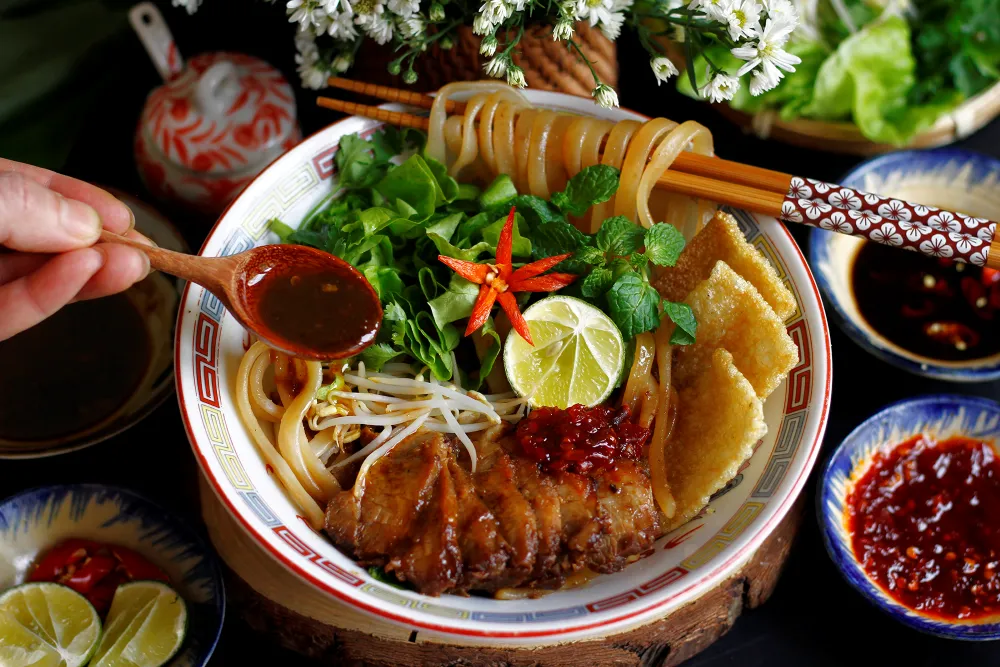
Cao Lau, the signature specialty of Hoi An, stands out with its thick, firm noodles, prepared using local well water that gives them a unique texture. Served almost dry, they are accompanied by slices of roast pork flavored with five spices, crunchy bean sprouts, and fresh herbs picked from the Tra Que gardens. A few pieces of crispy rice crackers add contrast, while a light drizzle of savory sauce coats everything without immersion. Cao Lau thus offers a singular culinary experience, halfway between stir-fried noodles and soup, marked by a subtle balance between softness, freshness, and crunch. Enjoying this dish in the Old Quarter, surrounded by colorful lanterns, is an unforgettable Vietnamese street food experience.
Banh Xeo
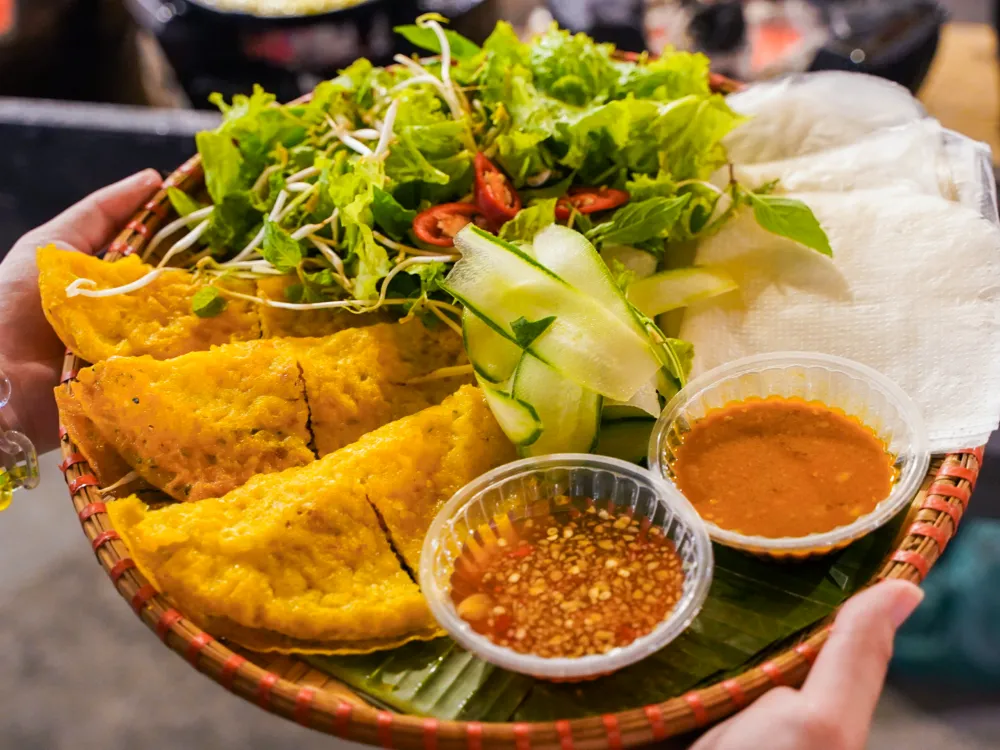
Banh Xeo is a thin, crispy Vietnamese pancake, filled with pork, shrimp, and bean sprouts, which is rolled in mustard or lettuce leaves with herbs before being dipped in nuoc-mam sauce. Its golden color literally recalls its name, which means "sizzling pancake." Very popular in the Central markets, Banh Xeo embodies the conviviality and generosity of Vietnamese specialties, and remains a reliable choice for Vietnamese street food.
Mien Luon
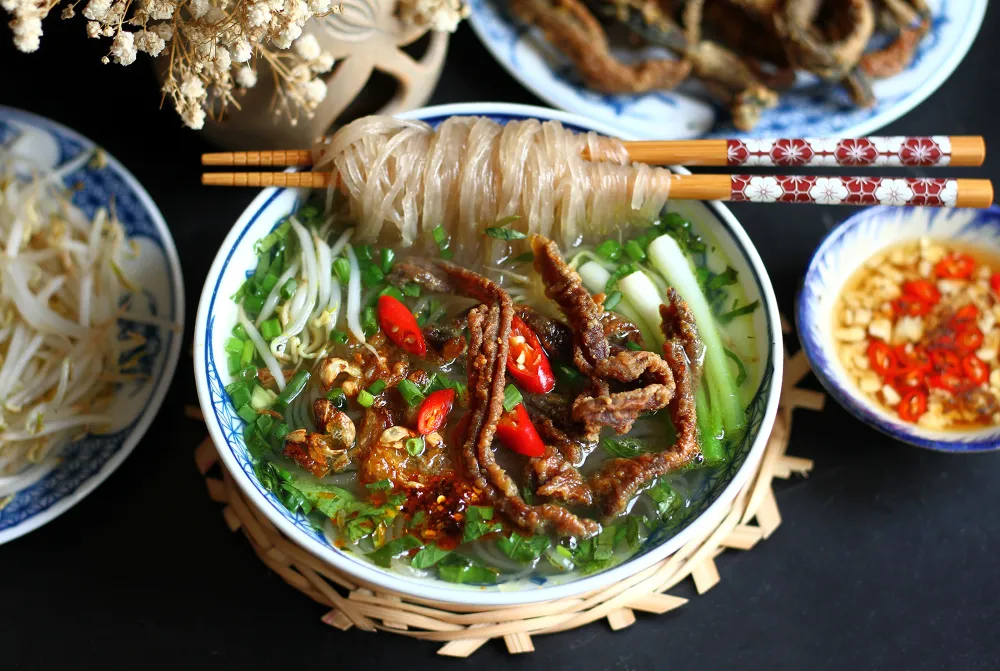
Mien Luon is a sweet potato vermicelli soup topped with fried or braised eel. The broth is rich and fragrant, often enhanced with fresh herbs, coriander, and bean sprouts. Crunchy, savory, and slightly spicy, this dish offers an original and typically regional culinary experience. Considered one of the most unique Vietnamese specialties, Mien Luon is an essential stop for travelers who want to discover the diversity of Vietnamese cuisine and the inventiveness of Vietnamese street food.
Banh Bot Loc
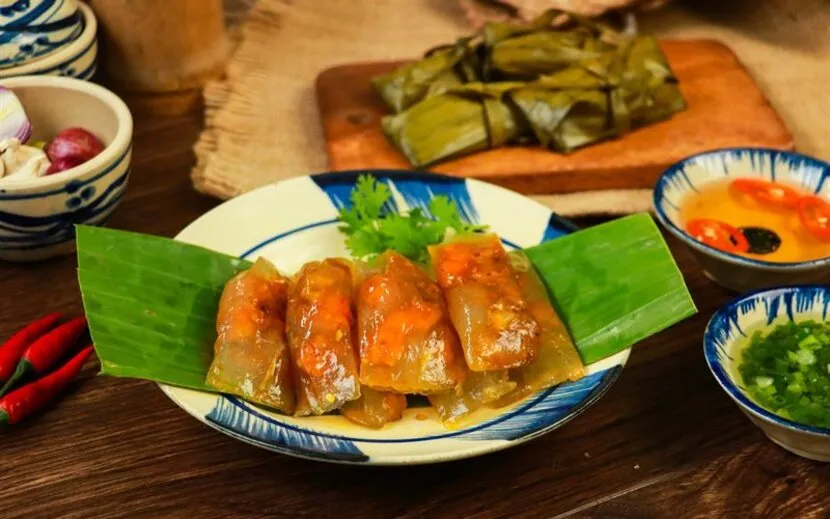
Banh Bot Loc is a small, translucent dumpling made from tapioca flour, stuffed with shrimp and pork, then steamed or boiled. Served in a banana leaf or directly on a plate, it is enjoyed with a slightly sweet nuoc-mam dipping sauce. Its elastic texture and delicately fragrant taste appeal to both locals and visitors. This refined dish perfectly illustrates the elegance of Central Vietnamese specialties and is among the essential discoveries of street food in Vietnam.
3. Southern Vietnam Street Food
Southern Vietnamese cuisine, centered in Saigon (Ho Chi Minh City) and the Mekong Delta, is known for its sweetness, use of fresh coconut milk, and abundance of tropical produce. These dishes capture the vibrant energy of the Vietnam food scene.
Com Tam
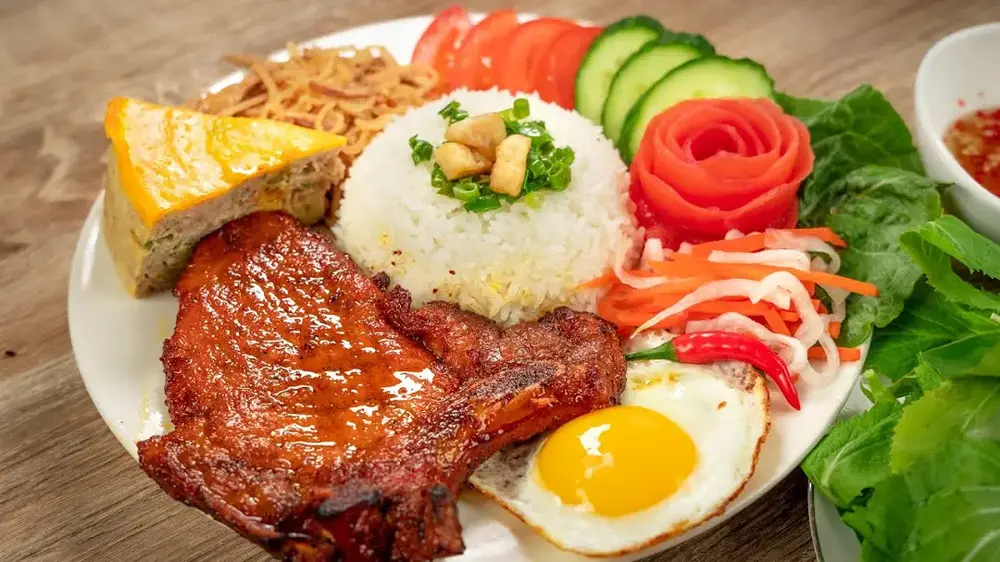
Com Tam, or "broken rice," is an iconic Saigon dish. Made from fractured rice grains, it is typically served with grilled pork, a fried egg, a steamed meatloaf, and pickled vegetables. Drizzled with a fragrant nuoc-mam sauce, Cơm Tấm is appealing in its simplicity yet richness of flavor. Easy to find in markets or popular eateries, it reflects the essence of street food in Vietnam and holds an essential place among Vietnamese specialties.
Banh Canh Cua
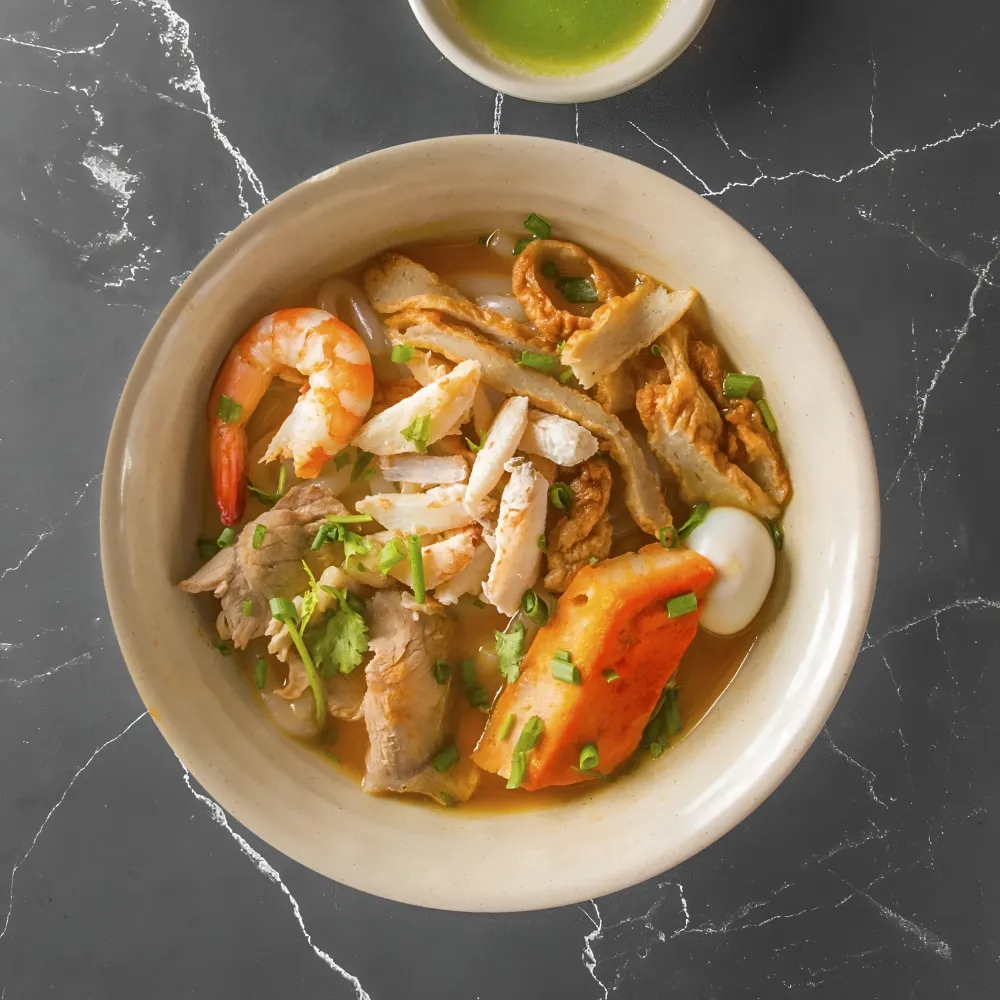
Banh Canh Cua is a thick noodle soup made from tapioca or rice, served with a creamy crab broth. Topped with crab meat, shrimp, pork, and sometimes quail eggs, it is appealing for its texture that is both dense and silky. This dish illustrates the richness of Vietnamese cuisine, combining fresh ingredients and typical marine flavors of the South. Comforting and savory, Bánh Canh Cua is a true star of Vietnamese street food.
Goi Cuon
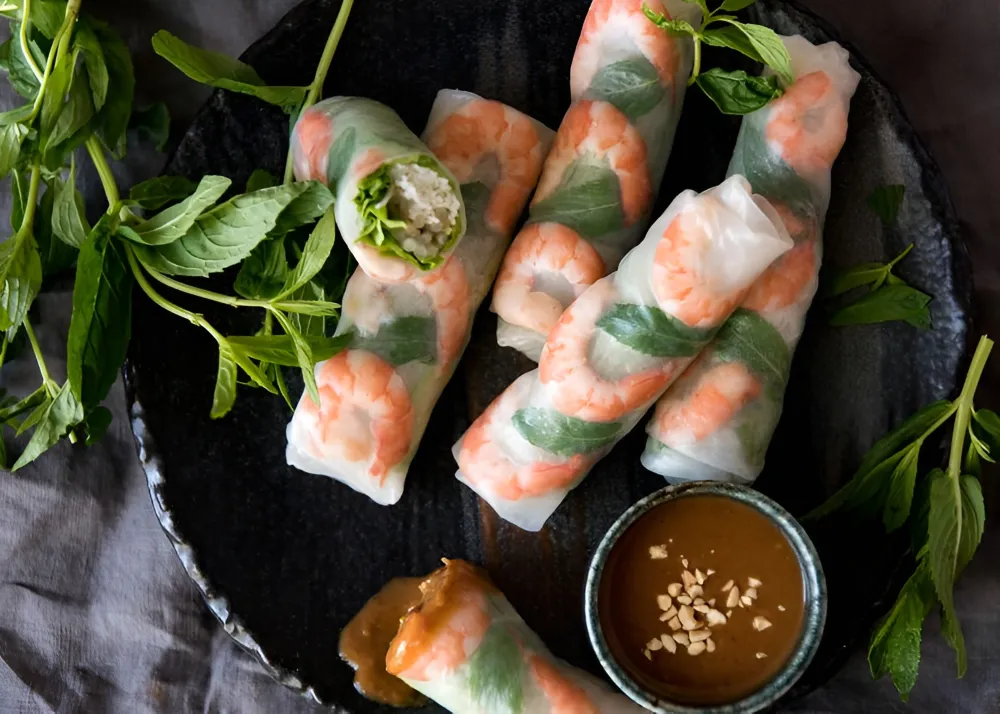
Goi Cuon, also known as fresh spring rolls, consists of shrimp, pork, rice vermicelli, herbs, and crunchy vegetables, all rolled in a translucent rice paper. Light and healthy, it is enjoyed with a peanut or spicy nuoc-mam sauce. Fresh and colorful, Goi Cuon is one of the most popular Vietnamese specialties, perfectly representing the balance and freshness of Vietnamese cuisine. It is also a perfect option for discovering the diversity of street food in Vietnam without excess fat.
Bun Thit Nuong
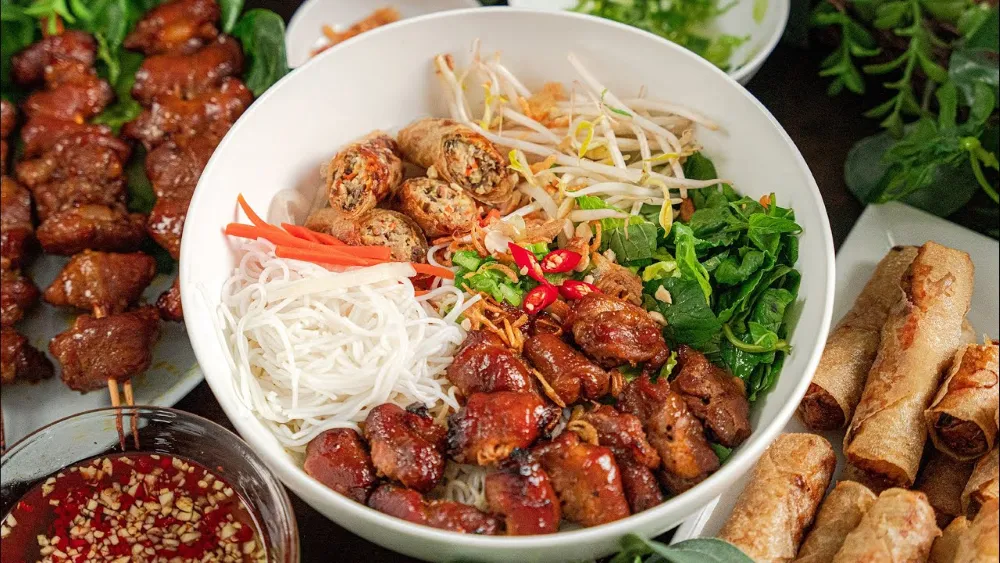
Bun Thit Nuong is an emblematic dish of the South, consisting of cold rice vermicelli topped with charcoal-grilled pork, crushed peanuts, fresh vegetables, and fragrant herbs. The whole is drizzled with a slightly sweet and sour nuoc-mam sauce. Both refreshing and gourmet, this dish illustrates the generosity of Vietnamese cuisine and the subtle balance of flavors. Easy to find in markets and stalls, it is one of the must-try Vietnamese specialties of street food in Vietnam.
Banh Mi Sai Gon
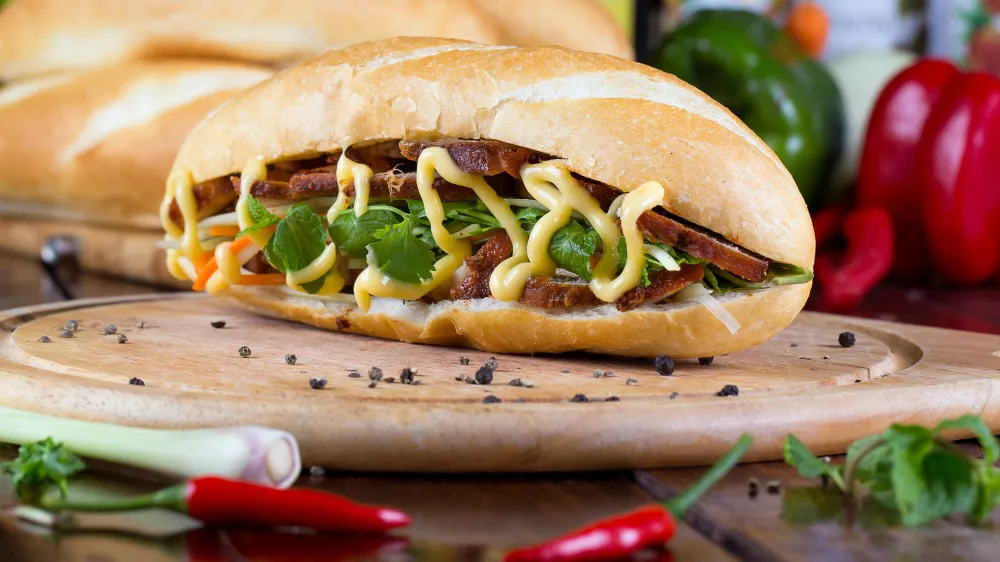
Considered the king of sandwiches, Banh Mi Sai Gon combines the crispy baguette—inherited from French tradition—with a generous filling: pâté, Vietnamese cold cuts, pickled vegetables, cucumber, cilantro, and a spiced sauce. This blend of textures and flavors makes it a symbol of Vietnamese street food. Each bite embodies the identity of Vietnamese cuisine, both mixed and inventive, transforming Bánh Mì into one of the most appreciated Vietnamese specialties worldwide.
Bot Chien
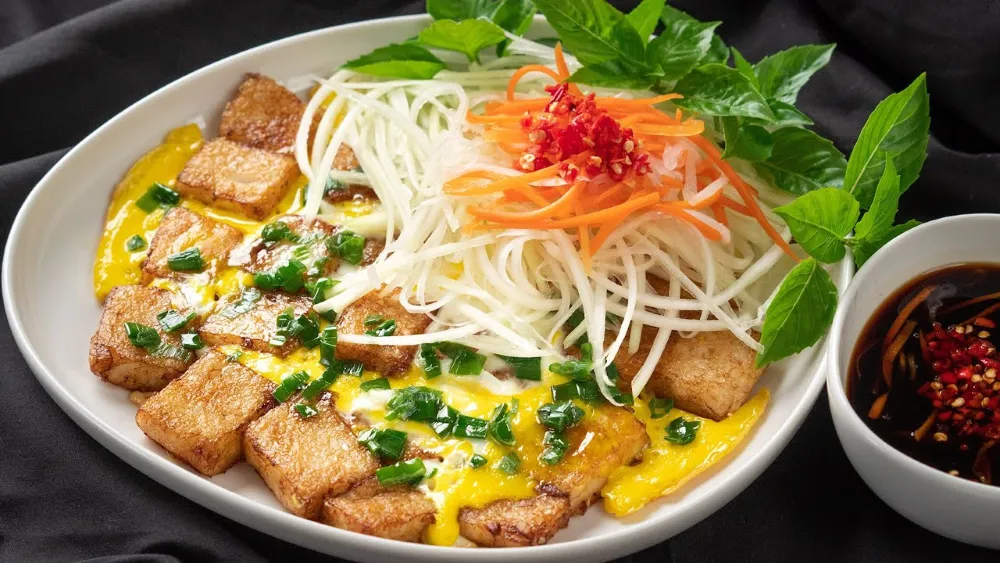
Bot Chien is a popular Saigon specialty, much appreciated as an evening snack. It consists of small cubes of rice dough fried in a pan until they become crispy on the outside and soft on the inside. They are then topped with beaten eggs and fresh chives, and served with a sweet and sour sauce based on soy and vinegar. Simple but irresistible, this dish perfectly illustrates the spirit of Vietnamese street food and the convivial taste of Southern Vietnamese specialties.
Hu Tieu
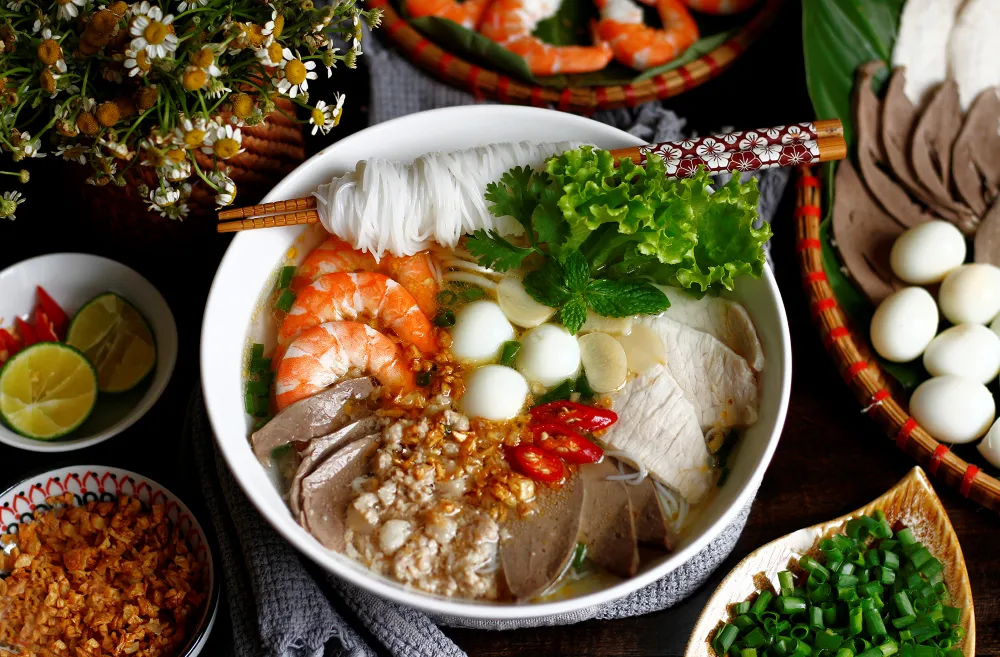
Hu Tieu is a noodle soup originating from the South, particularly popular in Saigon and the Mekong Delta. Its clear, slightly sweet broth, prepared from pork bones, is served with fine rice noodles, pork, shrimp, offal, or sometimes squid. Garnished with fresh herbs, bean sprouts, and a drizzle of lime, Hủ Tiếu offers a subtle and comforting flavor. Easy to find in street stalls as well as restaurants, it remains a reliable choice for Vietnamese street food and one of the most appreciated Vietnamese specialties.
Each of these dishes reflects the soul of Vietnamese cuisine and its incredible diversity. Today, all these specialties have become popular throughout the three regions, and it is possible to taste them almost everywhere in Vietnam. However, to savor their most authentic Vietnamese street food flavors, nothing beats a trip to their region of origin, where each recipe maintains all its richness and traditional aroma.
Discover Vietnam Culinary Tour
See more:
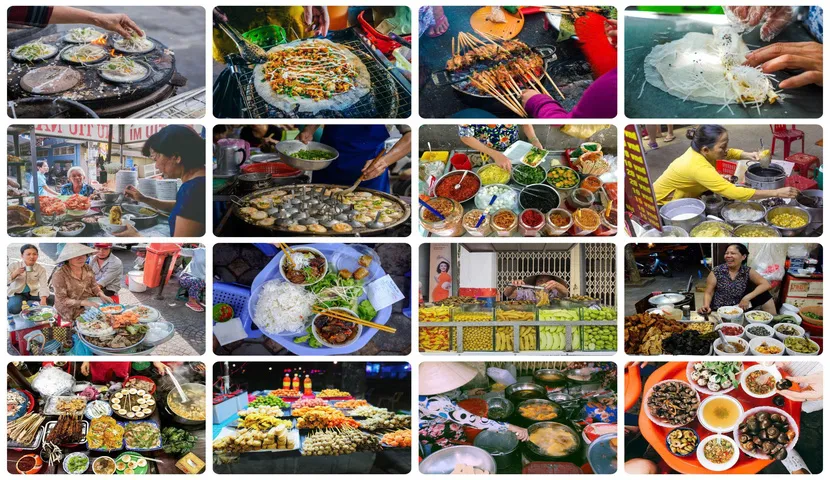









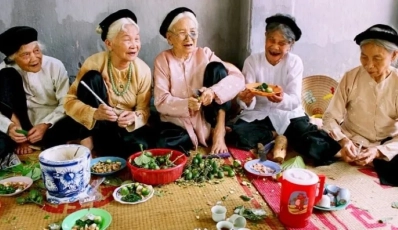
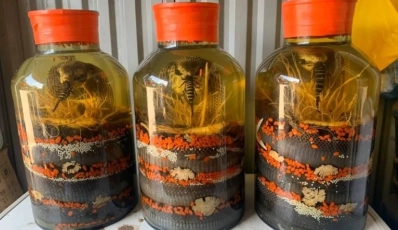

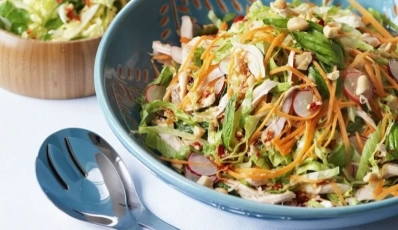
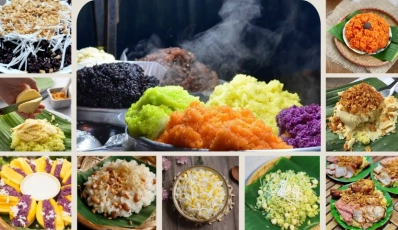

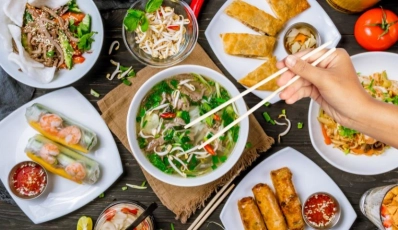




 TRAVELERS' CHOICE 2025
TRAVELERS' CHOICE 2025 